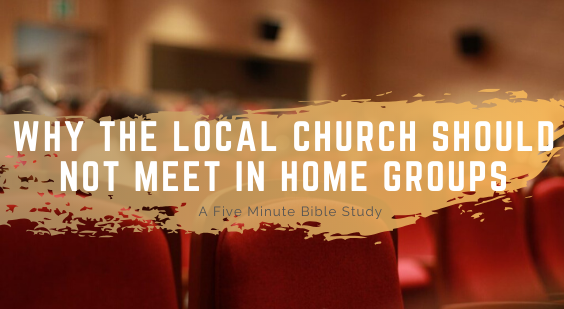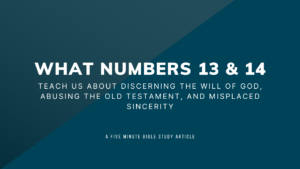I’ve been staying very busy during the whole virus crisis thing-a-ma-jig, so much so that I often forget there is indeed a crisis outside my four walls. It’s been a couple of weeks since any new and radical executive orders were handed down restricting assemblies to include churches. With that being said, churches have had some time to decide how they will proceed with assembling in lieu of government suggestions in some states and outright restrictions in others. Those decisions of how to proceed may change from week to week and even day to day.
I write this briefing as a gentle Christian plea to all my brothers and sisters in Christ, attempting to give sound, harmonious, and encouraging reasons as to why you should worship God as the local church in one, undivided, physical assembly in all circumstances.
Allow me to clarify this premise. This is not written to address the controversy of cancelling or maintaining the Lord’s day assembly due to health risk or government advisement. This is written to address the issue pressing on the minds of many- “Why not meet in small groups from house to house until restrictions are lifted?” (This alternative will from here on be referred to as the “small groups proposal.”) I certainly am not writing this accusingly of any individual or church, for I do not know of anyone personally who has chosen this method of assembling, though no doubt some are practicing accordingly. Rather, if you are a Christian who has questions about the scripturality of dividing the church into small groups, this is for you. I am no pope, church officer of the law, or anything of the sort, but I do find it my duty as an evangelist of the gospel to give the sense of scripture and proclaim it in simplicity, sincerity, and with hopeful benefit to all. May this contemplation on what constitutes a scriptural assembly of the church reveal that natural disasters introduce nothing new under the sun.
Nothing New Under the Sun
This happens all the time to me: someone will quote a line from a movie and, though I can’t think of the movie for the life of me, I say to myself, “I’ve heard that somewhere before!” When I recently heard someone suggest, “Why don’t we split up into small groups of 10 and meet in individual houses?” I said to myself, “I’ve heard that somewhere before!” The movie didn’t come to me at first but then I remembered! It was the documentary The Sunday School System by Robert Raikes. Those familiar with the history and evolution of the Bible class system will appreciate my satire hopefully. I’ve heard several times people suggest the small groups proposal as no different than what Christians did in the first century when meeting from house to house, and that has a nice ring to it to be fair. But the more I thought and thought and thought on this proposal the more I became convinced, “I’ve heard that somewhere before!” Call it what you will, but the small groups proposal when stripped bear is nothing more and nothing less than a Bible class model.
The Bible Class Model
I have friends who use Bible classes under normal circumstances, and they understandably find nothing wrong with this small groups method of assembling. It surprised me when some church members who use individual communion cups, wafers, and Bible classes were outspoken about the need to assemble under the current circumstances. But for those who have long contended that the Bible class model is unscriptural, this newest proposal should cause alarm. While the Bible class model was originally ushered into the church with the assumption that children would learn better in their own age based learning environment, it evolved into gender based, relationship status based, career based, and other interest based divisions to create theoretically optimal learning environments for all. If I asked,
“Why are Bible classes unscriptural?”
most Christians who know they are supposed to think them unscriptural would say either, “Because Bible classes segregate the church by age,” or, “I don’t know.” Clearly I believe the Bible class model is wrong, but it is not based on HOW the assembly is segregated. It’s wrong based on the simple fact that the assembly of God’s people come together for worship and instruction is segregated…period. The class system for teaching the word of God was borrowed from the world of secular education, not the word of God. It was adopted because men thought that it would promote more effective learning, not because the Bible indicated God desired such. Many in Southern Baptist circles particularly have discovered after decades of Bible class practices that division of the assembly results in decreased youth retention and fathers neglecting their responsibility of spiritual discipleship in the home (see Divided and Family Shepherds). But we aren’t focusing on pragmatics here, we are concentrating on whether or not there is biblical authority for such a practice. My suggestion is that no biblical authority exists for the local church to divide its membership into distinct groups or assemblies. Any such attempt to do so is equivalent to a Bible class regardless of the circumstance urging such a change. If indeed the Bible class model is without authority, it would be better for the local church to do nothing at all and each individual stay home if it cannot come together in one, undivided assembly for worship and instruction.
For Part 2 in this series click here > The House to House Church



